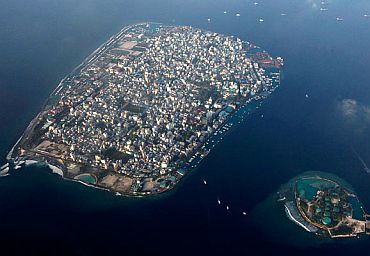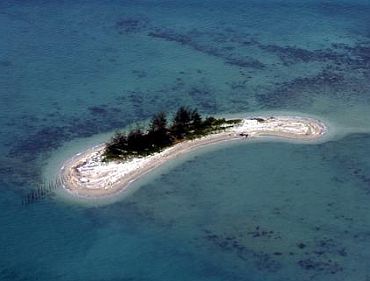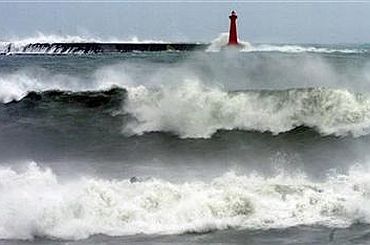 | « Back to article | Print this article |
Indian Ocean sea levels are rising unevenly
Indian Ocean sea levels are rising unevenly and threatening the residents in some densely populated coastal areas of India and Bangladesh, besides the island nations of Maldives and Sri Lanka, a new study has said.
Sea-level rise is particularly high along the coastlines of the Bay of Bengal and the Arabian Sea, as well as the islands of Sri Lanka, Sumatra and Java, says the study carried out jointly by the scientists from the University of Colorado at Boulder and the National Centre for Atmospheric Research.
The rise in sea level of the Indian Ocean is at least partly a result of climate change, the study says according to a statement issued by the National Science Foundation (NSF). Click on NEXT to read further...
Greenhouse effect
"The rise -- which may aggravate monsoon flooding in Bangladesh and India -- could have future impacts on both regional and global climate," the NSF said.
Key player in the process is the Indo-Pacific warm pool, an enormous, bathtub-shaped area spanning a huge area of the tropical oceans stretching from the east coast of Africa east to the International Date Line in the Pacific.
The warm pool has heated by about 1 degree Fahrenheit, or 0.5 degrees Celsius, in the past 50 years, primarily because of human-generated emissions in greenhouses gases.
What to expect in the future
"Our results from this study imply that if future anthropogenic warming effects in the Indo-Pacific warm pool dominate natural variability, mid-ocean islands such as the Mascarenhas Archipelago, coasts of Indonesia, Sumatra and the north Indian Ocean may experience significantly more sea-level rise than the global average," said scientist Weiqing Han, author of a paper published in the journal Nature Geoscience.
Noting that this work is a step forward towards getting improved estimates of sea-level changes in one of the most heavily populated regions of the globe, Eric Itsweire, director of NSF's physical oceanography programme, said: "Quantifying the heat and fresh water balance, as well as the large-scale circulation changes, in the Indo-Pacific warm pool through the use of observations and numerical models is crucial to understanding the subtle sea-level changes occurring in that region."


